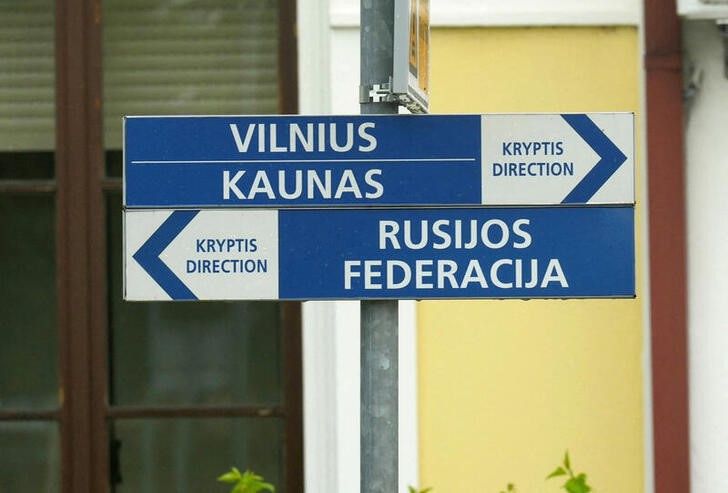
VILNIUS, July 11 (Reuters) – Lithuania on Monday expanded restrictions on trade through its territory to Russia’s Baltic exclave of Kaliningrad, as phase-ins on earlier-announced European Union sanctions against Moscow over its invasion of Ukraine took effect.
Additional goods barred from Monday morning include concrete, wood, alcohol and alcohol-based industrial chemicals, a spokesperson for Lithuanian customs said.
Russia warned Lithuania and the European Union on Friday that it could adopt “harsh measures” against them if the transit of some goods to and from Kaliningrad did not resume “within the coming days”. read more
On Monday, the Kaliningrad regional governor proposed a total ban on overland movement of goods between Russia and the three EU Baltic member states of Lithuania, Latvia and Estonia, to push them into using Kaliningrad ports. read more
“This will provide activities to (our) maritime carriers and give work to Kaliningrad ports, which have been hit hard by the EU restrictions,” Governor Anton Alikhanov said.
The EU trade restrictions have been upgraded as governments, markets and companies worry Russia could choose to extend the shut-off of the biggest single pipeline carrying Russian gas to Germany beyond a planned 10-day maintenance period. read more
TEST OF RESOLVE
Kaliningrad borders on NATO and EU member states Lithuania and Poland and relies on railways and roads through Lithuania for most goods. The coastal territory has been cut off from some freight transport from mainland Russia since June 17 under the EU sanctions regime.
Goods that fall within humanitarian or essential categories, such as food, are exempted from the sanctions.
The dispute over the isolation of Kaliningrad is testing Europe’s resolve to enforce the sanctions amid fears of an escalating confrontation with Russia after other restrictions pushed Moscow to default on its debt. read more
EU officials, with Germany’s backing, sought in late June a swift compromise to resolve the stand-off. However sources told Reuters that Lithuania, once ruled from Moscow within the old Soviet Union, had serious reservations about making what could be seen as a concession to the Kremlin.



